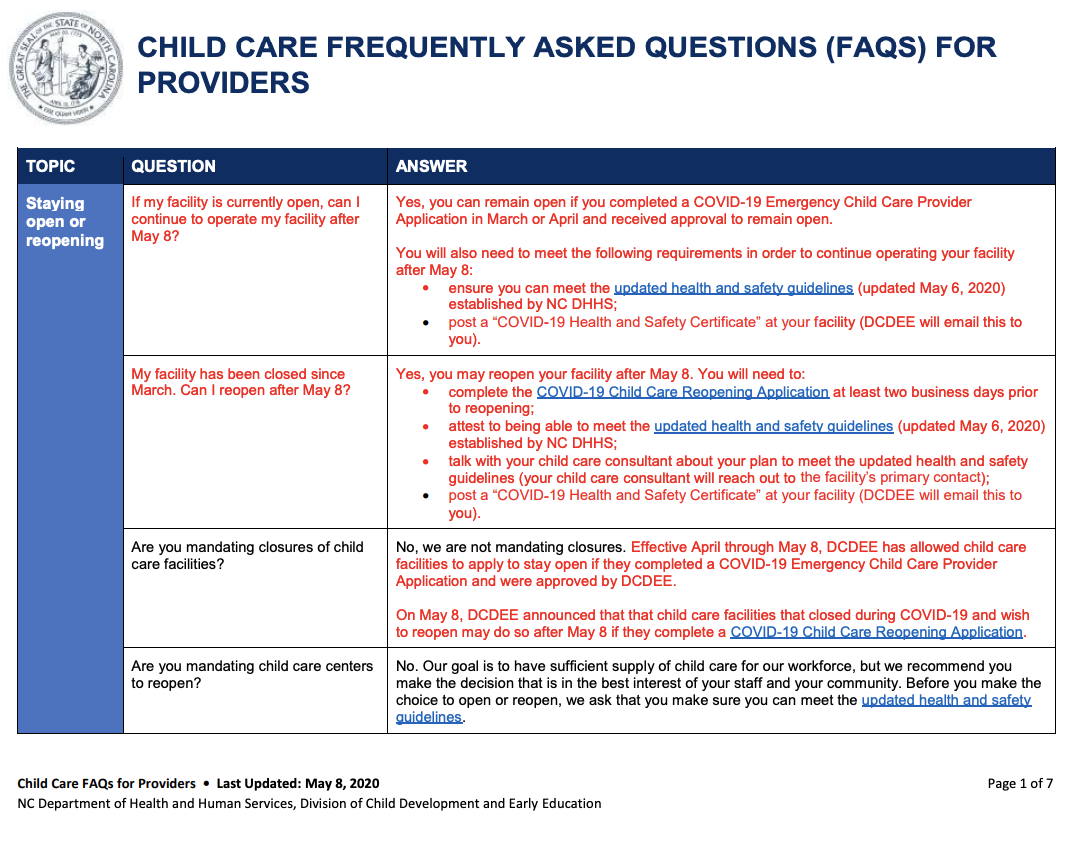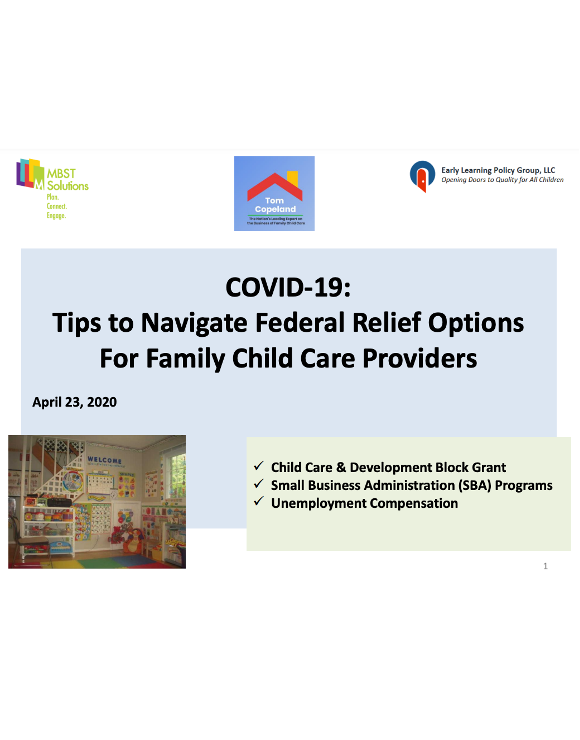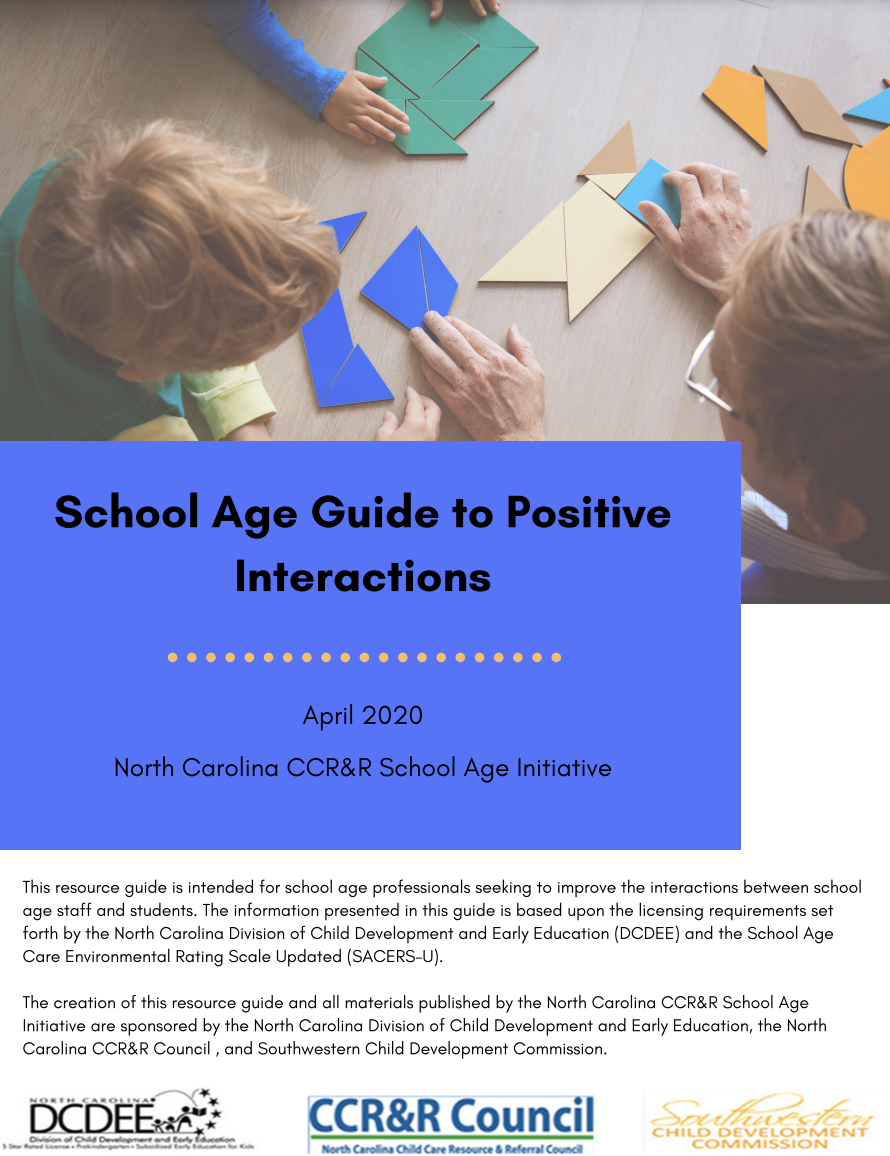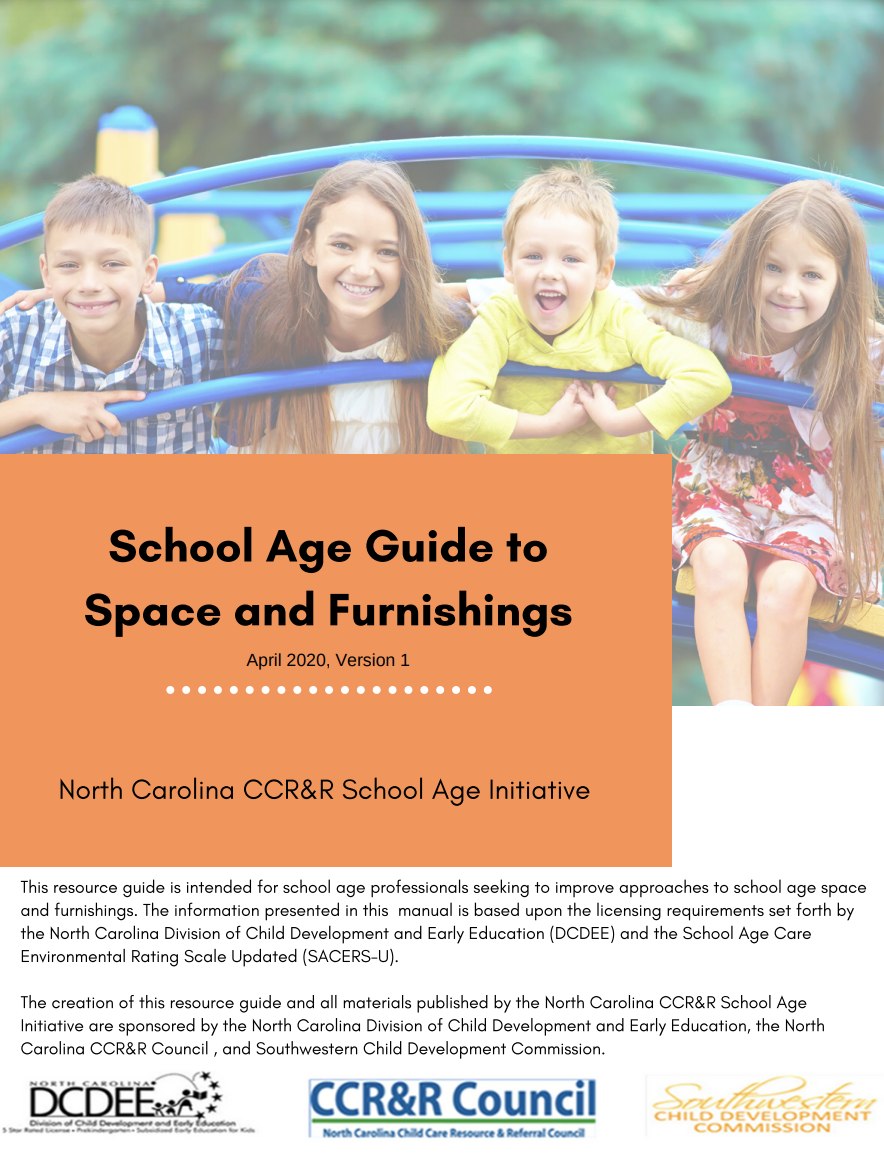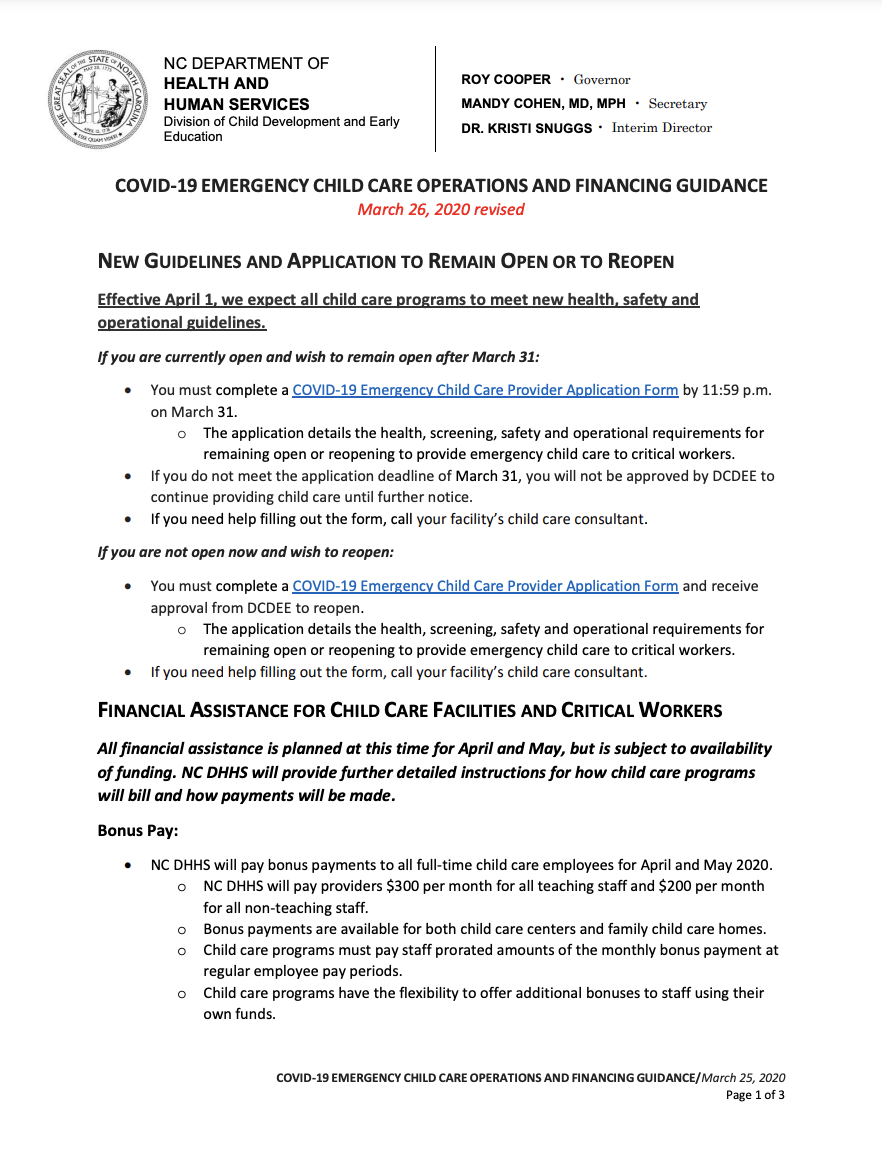FAQs for child care providers on a range of topics related to COVID-19.
Resource Type: Guidance
COVID-19: Tips to Navigate Federal Relief Options For Family Child Care Providers (WEBINAR)
Tips covering the Child Care & Development Block Grant, Small Business Administration (SBA) Programs and Unemployment Compensation. Register to view the webinar.
COVID-19: Tips to Navigate Federal Relief Options For Family Child Care Providers (SLIDES)
Tips in this PDF cover the Child Care & Development Block Grant, Small Business Administration (SBA) Programs and Unemployment Compensation.
School Age Guide to Positive Interactions
This resource guide is intended for school age professionals seeking to improve the interactions between school age staff and students. The information presented in this guide is based upon the licensing requirements set forth by the North Carolina Division of Child Development and Early Education (DCDEE) and the School Age Care Environmental Rating Scale Updated… Continue reading School Age Guide to Positive Interactions
Find Something to Make You Laugh or Smile [VIDEO]
Watch this helpful and uplifting video from the Devereux Center for Resilient Children.
School Age Guide to Space & Furnishings
This resource guide is intended for school age professionals seeking to improve approaches to school age space and furnishings. The information presented in this manual is based upon the licensing requirements set forth by the North Carolina Division of Child Development and Early Education (DCDEE) and the School Age Care Environmental Rating Scale Updated (SACERS-U).… Continue reading School Age Guide to Space & Furnishings
Provider Portal for COVID-19 Emergency Child Care Subsidy Program
DCDEE has launched a new Provider Portal for the Emergency Child Care Subsidy Program to be used by providers who are accepting and serving new children of essential workers. Providers can use this job aid to learn how to log into the new Provider Portal, how to add/remove children in the portal, and how to view the roster. Visit… Continue reading Provider Portal for COVID-19 Emergency Child Care Subsidy Program
Webinars for Child Care Providers Related to COVID-19
DCDEE held several informative webinars for child care providers. On March 30 & 31, 2020, DCDEE held calls with child care providers to provide an overview of guidance provided to date, the COVID-19 Emergency Child Care Provider Application, and financial assistance available for providers and parents. Links to the webinar recordings and presentation available here.
COVID-19 Emergency Child Care Operations & Financial Guidance
Guidelines and application to remain open or to reopen.
Social Connecting While Social Distancing [VIDEO]
Watch this video from the Devereux Center for Resilient Children for some great tips!
